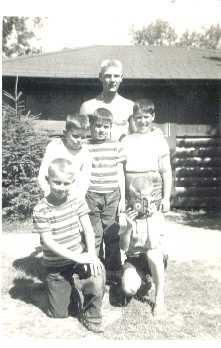

If not for Zazu, Simba and Nala would have very well met their demise at the jaws of the hyenas, as it was he who had informed Mufasa of the danger before things could take a turn for the worse. As the king's "eyes and ears", Zazu knows all and tells all, especially when trouble arises. Nevertheless, Zazu is undoubtedly loyal to the king and has proven his usefulness on numerous occasions. Even Mufasa has had his share of fun in teasing Zazu. Similarly, Scar saw Zazu as nothing more than a pest and repeatedly sought to torment the hornbill when given the chance. Unfortunately, the demanding, and sometimes dangerous nature of his job has left Zazu with a considerable amount of anxiety and emotional instability he is prone to falling into a panic when things go wrong, and he can be rather irritable and snappish.īecause of his fragile temper and high opinion of himself, Zazu is not taken very seriously by the other characters, specifically Simba and Nala, who would often tease the majordomo as children. He takes his position as a royal advisor very seriously, and carries himself in a no-nonsense-and oftentimes, pompous-manner. When Zazu was young, Zuzu trained him to take her place when Mufasa's rule began.Īs the king's majordomo, Zazu is knowledgeable, diplomatic, and stern. In How True, Zazu?, Zazu's mother, Zuzu, was a steward to Kopa's great-grandfather Ahadi. Mufasa realizes that the little hornbill is useful after all and appoints him as the royal adviser. Zazu finds a tree trunk that Mufasa drags over to the pit, allowing Sarabi to climb out. But Mufasa can't find a way to rescue Sarabi. Zazu flies back to tell Mufasa who leaps up and runs to the gorge. Zazu flies over to where the vultures are anyway and sees that Sarabi has fallen into a pit and can't get out. He asks Mufasa if he wants him to fly over and see what's happening, but Mufasa is not concerned and lies down for a nap. One day, Zazu notices some vultures hovering. Mufasa quickly gets tired of this as Zazu disturbs his hunts and his private time with his betrothed Sarabi. Zazu follows Mufasa around and watches over him. Zazu is thankful and hopes that he can be of service to the future Lion King someday. In the book Friends in Need, Young Zazu is about to be cooked and eaten by the three young hyenas (which explains his cry of "Oh, no! Not the birdie boiler!" in the first movie) Shenzi, Banzai, and Ed, when an adolescent Mufasa comes along, frightens off the hyenas and saves him. But really, you don't even have to care about the background all that much in order to find this miniature feature a pleasure to watch.Zazu has two conflicting histories as to how he became the King's majordomo: As other reviewers have noted, the original date can be determined with a little detective work, and Richard Roberts's commentary on the Laughsmith/Mackinac Media collection of Roscoe Arbuckle movies is well worth listening to, for all the fascinating details that he points out. The movie's historical background is equally interesting. It's great fun just to see these and other brief appearances.


A number of them perform brief but wonderful trademark bits: Harold Lloyd does the little jig from "The Freshman", Roscoe Arbuckle (looking much thinner as a result of his legal ordeal) does a frying pan gag, and Douglas Fairbanks appears as a swashbuckling Robin Hood.
ZAZU ROSCOE SERIES
Carter DeHaven sets things up by announcing a series of 'impressions', which then introduce appearances by several of the biggest film stars of the 1920s. The idea is very simple, but it is pulled off flawlessly, with special effects that are excellent for its era, and with plenty of good-natured energy from the numerous stars who appear in it.
ZAZU ROSCOE MOVIE
Besides being a rather tantalizing piece of movie history, this is a fun and well-crafted short feature in its own right.


 0 kommentar(er)
0 kommentar(er)
